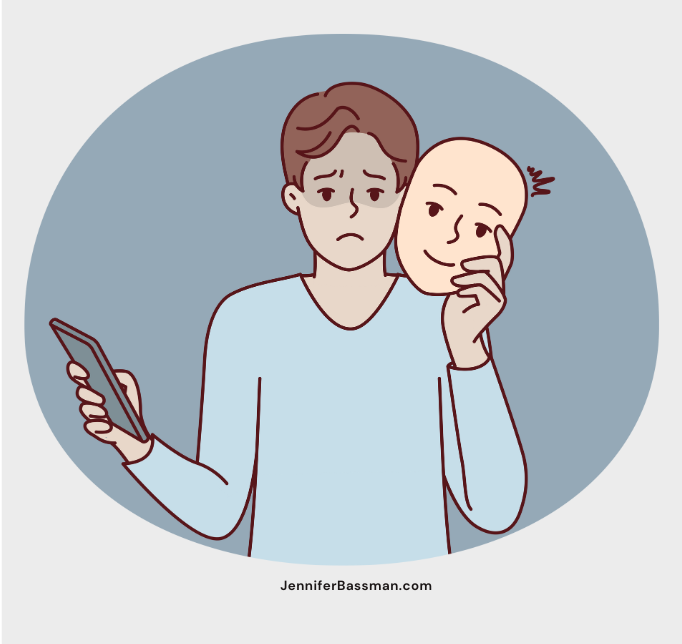If you’re burned out, what you really need are effective work burnout solutions to help you recover.
Right away, I’d like to knock out the obvious solutions, then I’ll tell you about six less obvious solutions to your work burnout that will truly have an impact.
One thing to note: burnout recovery isn’t quick. It doesn’t happen overnight or in a few days. Your recovery time will depend on how long you have been burned out and how quickly you can find effective solutions that work for you.
That’s why I’m here. I want to share effective solutions so your recovery process isn’t as frustrating or confusing. Will you still have bad or tough days while recovering? Yes, but they will become fewer.
Obvious Burnout Solutions
You can go to pretty much any article on the internet about burnout solutions and it will advise you to do the following:
- Get more sleep
- Work less or find a less stressful job
- Let go of stress
- Exercise more
- Eat a healthy diet
- Learn to delegate
- Yoga, Meditation
Let me be clear: none of those answers are wrong. In fact, all or a combination of those things will be part of your burnout recovery.
BUT – and this is a big but – what no one tells you or makes clear: it is going to take a combination of solutions that go deeper that are unique to you.
Let me repeat myself: effective work burnout recovery is going to take a combination of solutions that are unique to you that go deep and get to the root cause of your burnout. Otherwise, everything else is just a band-aid.
Are you ready to go deep? I ask this because this is where some of my tough love and telling it like it is starts. You are going to have to make some hard choices and changes to your mindset to get rid of the things that burned you out. ( If you want a better definition of work burnout and how it happens, read Work Burnout 101.)
Solution 1: Get to the root of your burnout.
If you don’t know why you are burning out, what is really causing you to burnout, most burnout solutions won’t work.
Why is getting to the root so important? Because it is the driver and the cause of your work burnout.
One of the most effective ways to find the root of your burnout is by taking a CliftonStrengths assessment. The results of this assessment will identify your talents and your strengths. Often, the root of our burnout is because we aren’t working in our zone of genius or doing what we do best.
This isn’t the only way to find the root of your work burnout, but it is one of the most effective.
Solution 2: Change your belief system and your mindset about what you can control
When you’re burned out, you feel like life and circumstances are beyond your control. This solution is where I begin to hear so many of the excuses: I hear a lot of:
I can’t…
Someone else is making me…
I’m not good at change…
This mindset only blocks you from doing anything about your situation. You need to believe that you can make choices to improve your present situation.
You also need to believe that taking action and taking charge will change the way you feel and understand it will take some time.
Solution 3: Understand that burnout isn’t about weakness or failure.
I mention this because it relates to the necessary mindset work. Often, we feel we have failed ourselves or others because we are too tired and unable to function as we normally do.
We don’t feel productive or effective when we’re burned out. So, give yourself some grace.
Solution 4: Be honest with yourself that even though it feels like everything is working against you and that you don’t have much control over your situation, no one else is to blame for your burnout.
Remember that tough love I talked about earlier? Here it comes…
One of the most common complaints I hear from people experiencing burnout: that other people did this to them, put them in this mental and physical state.
This is one of the most difficult work burnout concepts to come to terms with: your burnout is the result of choices you have made over time.
- You chose to skip your lunch break.
- You chose not to take a vacation.
- You chose to overschedule yourself.
- You chose to say yes instead of no to a request that you do not have the time or capacity to fill.
- You chose to not have boundaries.
You do have the choice to say no, ask for an extension, turn down an invitation, or extra work. You are choosing to stay in a job that is making you sick, or continue with toxic relationships that contribute chronic stress rather than support.
But, but, but… No, you have a choice.
You have a choice to take back control of your situation and manage your time and energy. Yes, others may have contributed to your situation, but you have the ability to make better choices that can improve your present and future.
Solution 5: Learn to say no and create effective boundaries.
No one likes to be told no, but you know what? They do expect it. For all you people pleasers and those afraid to feel guilty: people will respect you and your time more when you start saying no.
Creating effective boundaries around your time and energy are a cornerstone and a must to recover from work burnout. Consider what burned you out in the first place. Think about all of the extra work, the packed schedule, and the inability to rest and take time for yourself.
Not to mention, most of what you’re doing probably doesn’t align with your priorities and you aren’t making any progress toward your goals.
So, learn to say no and create effective boundaries.
If you need some help learning how, check the show notes below on how to find a copy of my book, Stop Being A Doormat. It is a must-have if you know you are a people pleaser and feel guilty saying no.
I also offer a free resource that’s a guide on how to say no in three easy steps.
Solution 6: It is going to take a combination of several solutions to recover.
I feel like I can’t say this one enough.
No one act, no one habit change, or concept works by itself. Each of the solutions I have mentioned so far requires that you are doing it in combination with another mindset shift or habit change in order for it to be effective.
For example: you can’t just take a nap and expect for your burnout to disappear. Don’t get me wrong: naps are great. I highly recommend them. But to make those naps more effective, you need to get rid of the chronic stress. So, keep taking a nap, but also stop overscheduling yourself, start saying no to projects or requests that you don’t have the capacity to complete. Otherwise, that nap is kind of wasted because that nap is supposed to be for recovery – not to help you power through extra burdens.
I do want to address some of the “obvious” work burnout solutions mentioned earlier:
- Let’s talk about sleep first:
- Getting more and higher quality sleep is part of many people’s burnout recovery. But, you can’t ignore all of the other contributors, as well as, like the root cause of your burnout. Sleep won’t be nearly as effective if you don’t remove yourself from chronic stressful situations.
- I also want to address removing yourself from chronically stressful work, relationships, and obligations.
- This is the hardest change for most of us to accept and follow through on. But, it is the most critical. The cause of burnout is chronic, excessive, and prolonged stress. If you don’t identify these stressors and remove them, you will not be able to recover from burnout.This doesn’t necessarily mean quitting a job or removing people from your life. What this means is finding solutions to get rid of the stress. This may mean asking for or hiring help, working fewer hours, taking on less work, having a conversation with your boss or employees about your workload, or spending less time with people that don’t make you happy.
In an ideal world, we would all be able to quit our jobs or kick a bad relationship to the curb. But, in some situations, that’s not possible to do immediately or needs to be done incremental steps.
The goal is to get to the point where you aren’t doing work or activity that doesn’t match your values and goals or spending time with people that don’t make you happy.
- This is the hardest change for most of us to accept and follow through on. But, it is the most critical. The cause of burnout is chronic, excessive, and prolonged stress. If you don’t identify these stressors and remove them, you will not be able to recover from burnout.This doesn’t necessarily mean quitting a job or removing people from your life. What this means is finding solutions to get rid of the stress. This may mean asking for or hiring help, working fewer hours, taking on less work, having a conversation with your boss or employees about your workload, or spending less time with people that don’t make you happy.
If you are suffering from burnout or working to prevent it, be sure to sign up for my email list at JenniferBassman.com and subscribe to my YouTube channel. I consistently update with videos that discuss burnout and ideas directly related to it.






